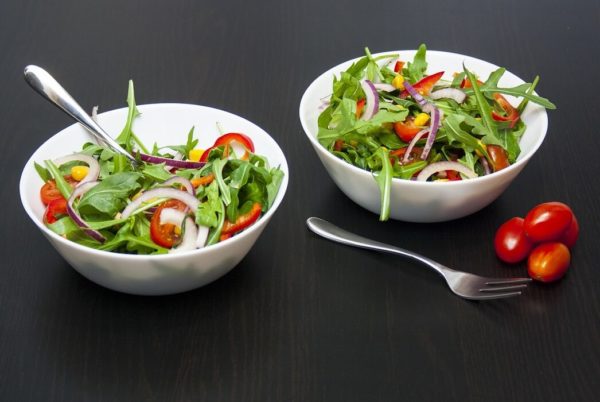Whether it’s for ethical reasons, or because you’re more health conscious, becoming vegan has benefits that are beyond question. However, beyond promoting a healthy weight, reducing chronic diseases and reducing your impact on the planet in the process, when the consumption of animal products, including meat, fish, dairy and eggs is neglected, nutritional imbalances can be created. So making the decision to become vegan requires being well informed in order to keep nutrients stabilized and present.
If you are convinced of your decision or just want to know a little about everything you should consider before adopting this lifestyle, we invite you to discover below what the things to consider first are.
What is it like to be vegan?
A vegan is a person who has decided for personal, ethical or cultural reasons to adopt a vegan lifestyle. Although unlike vegetarians who are a bit more liberal with their diet, becoming vegan involves dispensing with all animal products, even gelatine, as well as clothing made from leather and other materials created from animals.
All of this suggests that becoming vegan not only benefits our health, but also natural life and the environment since we are eliminating the consumption of animal products that, in some cases, have an appalling quality and are generally full of powerful antibiotics, which can pose great risks to our health. But at the same time we are reducing pollutants in the environment which helps foster a more natural ecosystem.
These are the things you should know before becoming vegan
1. It’s okay to start small and slowly.
You don’t have to make the switch all at once, that is, nobody wakes up one morning being vegan. Remember that becoming vegan is a lifestyle, so it requires a gradual change that takes time if you want to transcend to great habits that will last a lifetime. So making slight modifications can ease the transition.
Therefore, it’s best to start by adding plant-based foods to your diet while reducing animal-based products, especially those that are not organic since they have been produced and processed using chemicals and additives, the consumption of which involves risks to our health. Of course, we cannot forget to exclude refined processed foods from our diet. Anyway, although it may seem like you are taking turtle steps, making gradual changes and evaluating how you feel while doing so is the key to success.
2. Vegan diet is not a weight loss diet.
Vegan diet involves restrictions on foods of animal origin, including dairy, eggs, and honey. And on the other hand, it adds fresh fruits and vegetables, whole grains, healthy fats and proteins of plant origin which, in the long run, should lead to weight loss naturally. So it is not uncommon for many people who want to lose weight to turn to vegan diets.
However, vegan diet does not imply that it is lower in calories than what we are possibly eating right now. Although in theory, the fact of limiting the foods that can be eaten should be a guarantee of loss of kilos since vegan food contains much more fibre and water. There are many vegan-friendly foods that are nutritionally unsafe and high in calories, so they can even lead to weight gain.
An example of this is potato chips, so continuously enjoying them may not be the most appropriate method to lose weight. In order not to make these types of mistakes or bad choices when starting a vegan diet, it is best to seek help from a nutrition professional.
3. You will need vitamin B12 supplements
It is a vitamin that is mainly found in animal products, among them, meat, fish, poultry, eggs and milk and their derived products. Therefore, becoming vegan means being more prone to being deficient in vitamin B12, unless cereals for breakfast and grains that fortify them extensively are eaten.
Vitamin B12 is one of the 8 vitamins that make up the B Group and it is necessary to keep the body’s bones, nerves, and blood cells healthy, as well as to help us make DNA. Its deficiency can cause tiredness, weakness, constipation, loss of appetite, nervous problems, and depression. So we will have to stock up on a variety of B12-fortified foods, as well as a B12 supplement. To find out how much you need to increase your intake, you can ask your doctor for a simple blood draw.
4. You may also need iron
Since becoming vegan means not consuming meat, poultry, or seafood, you may need to ingest more iron if you want to benefit from it. This is a mineral necessary to oxygenate the blood, as well as for the growth and development of the body. However, its inadequate intake produces iron deficiency anaemia, which causes the red blood cells to shrink and contain less haemoglobin, resulting in the fact that the blood carries less oxygen from the lungs to the rest of the body.
Something that leads to symptoms such as fatigue, lack of energy, intestinal disorders, poor memory and concentration, and decreased ability to fight germs and infections or to control body temperature.
The main problem is that iron basically comes in two forms: heme from animals and “non-heme” iron from vegetables and iron-fortified foods. However, the iron we have is easily absorbed by the body, while the non-heme iron present in vegan diets is less easily absorbed.
This means that you may need to eat more iron, although beans, dried fruits, iron-fortified grains, and dark green leafy vegetables are also rich vegan sources of iron.
Definitely becoming vegan implies being well informed and being aware mainly of our diet, above all if we want to fill the traditional gaps that we are leaving by dispensing with animal products. So in the second part of this article we will address other things that you should also consider when assuming this lifestyle.




ALFA